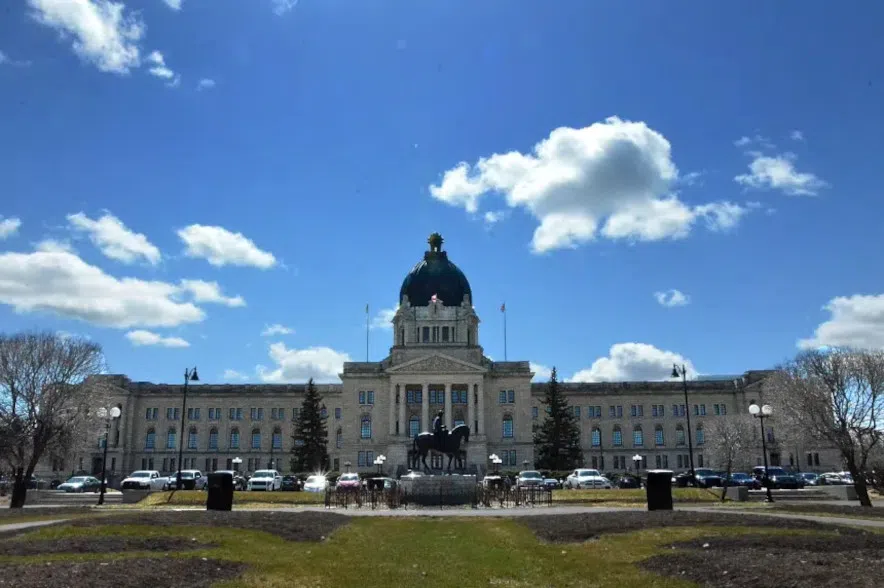Last week, the provincial government announced a projected $348.5 million deficit at the first quarter financial update. However, a closer look at the numbers reveals it could end up being more than double that.
The Finance Minister, Jim Reiter, explained the budget had moved to that deficit from the $12 million surplus announced in March for a number of reasons, including pension changes and a reduction in revenue.
Read more:
- SaskTel outage last Friday was caused by software update
- Hotels feeling the crunch with Labour Day Classic and canoe kayak nationals
- NDP repeats calls for action committee on drought relief
But, under the revenue column, the province is still counting $466.9 million from the Output-Based Performance Standards (OBPS) – its own industrial carbon tax, mandated by the federal government.
In March, Premier Scott Moe sat beside his environment minister and the minister responsible for SaskPower to announce his government would be zeroing out the industrial carbon tax and no longer collecting it.
At the time, they said they would consult with the industry to figure out a new way to reduce emissions, but couldn’t say what it might look like. The premier and his ministers couldn’t say how the province would exit the program or how the move would affect the province’s bottom line. Moe called the move “immaterial” to the budget.
“We have a balanced budget, or a $12 million surplus, that’s introduced into the legislature, and we have every intent on delivering that throughout the year,” said Moe on March 27.
If the revenue from the OBPS is removed from the budget, it would bring the deficit up to $815.4 million.
The Ministry of Finance said, even though the province is no longer collecting the tax, the program is still in legislation, and until it’s formally repealed, there is an accounting requirement to continue to forecast the revenue.
The premier reached out to Prime Minister Mark Carney in May to explain Saskatchewan’s position and to ask him not to enforce the federal carbon pricing backstop on the province.
A statement from the ministry said the province is continuing discussions with the federal government, and the financial reporting will be updated when the federal tax’s future is confirmed.
The first quarter update included mention of a $163 million reduction in SaskPower’s net income from budget, explained as a result of the province choosing to no longer collect the industrial carbon tax.
The ministry said SaskPower still has a carbon tax expense obligation under the law that needs to be recorded, so right now it’s absorbing the cost of the industrial tax.
The federal government on OBPS
For its part, Environment and Climate Change Canada, which administers the carbon tax, said that, while the prime minister had removed the consumer carbon tax in March, he also emphasized the need to maintain the industrial carbon pricing and meet the national standard.
“(The Government of Canada is) also committed to engaging with provinces, territories, Indigenous Peoples, and stakeholders on ways to make industrial carbon pricing more effective to ensure that the largest carbon emitters do their part,” read the statement.
It said that if any province makes significant changes to their system, there will be a federal reassessment of the system’s stringency against the federal benchmark.
As such, the statement said the federal government is following closely Saskatchewan’s announcement on pausing its system and will assess any formal changes the province makes.











